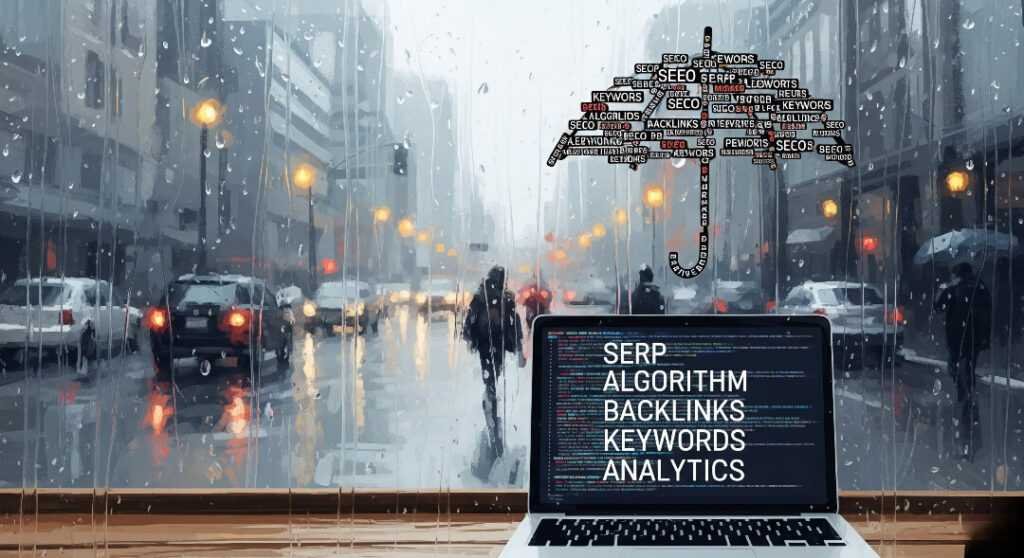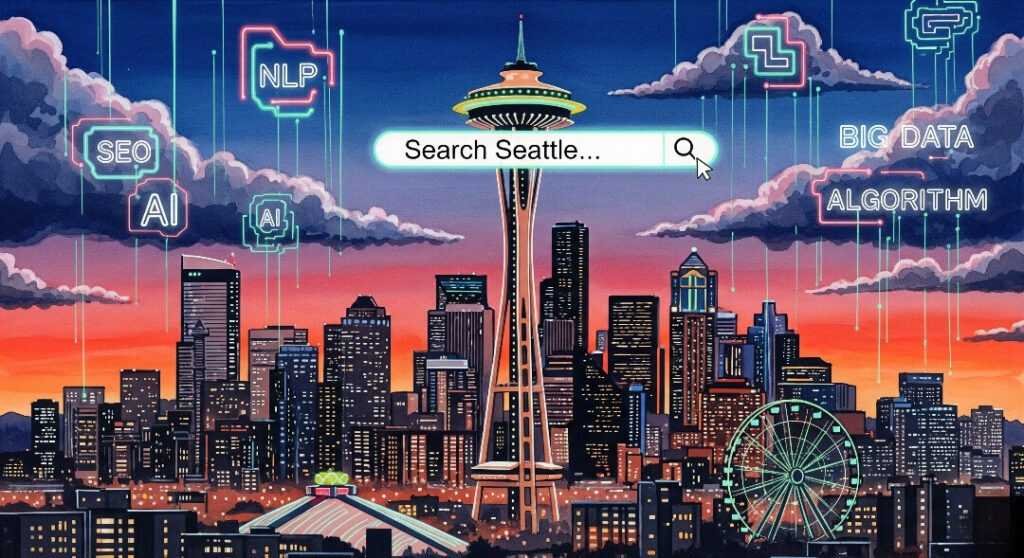So, I’m sitting here in my cramped Seattle apartment, rain tapping the window, trying to figure out optimizing content for NLP algorithms while my cat knocks over my coffee mug—again. Like, seriously? I thought I had SEO down pat—keywords, backlinks, sprinkle some meta tags, done. But now it’s like Google’s turned into this super-smart alien brain, and I’m over here with my ancient laptop, sticky keys, and a vague sense of panic. Last week, I legit spent an hour Googling “natural language processing SEO” while eating cold pizza, and I still don’t totally get it.
This whole NLP SEO thing has me excited but also low-key freaking out. Search engines aren’t just scanning words anymore—they’re, like, understanding them. And I’m just a human, messing up left and right, trying to keep up.
Why NLP Algorithms Are Making Me Rethink SEO
Okay, so optimizing content for NLP algorithms isn’t about cramming “best coffee shop” into every sentence anymore. Google’s AI—like BERT or whatever fancy name they’re using now—gets context, intent, even the vibe of what people want. I learned this the hard way last month. I wrote this blog post for a client, some hipster bakery in Portland, and I thought I was slick, stuffing in every keyword I could think of. Total fail. It ranked, like, page 10. Google was like, “Nah, bro, you missed the point.”
NLP algorithms are like that friend who knows you’re faking it when you say you’re “fine.” They dig into how your words connect, what you’re actually saying. Here’s what I’ve figured out, kinda:
- Context over keywords: Write like you’re chatting with a buddy, not feeding a machine.
- User intent is everything: Are people searching NLP SEO to learn or to buy something? Gotta nail that.
- Semantic vibes: Use related terms naturally, like “AI-driven SEO” or “content optimization,” without sounding like a robot.
My Cringe-Worthy First Stab at NLP SEO
So, picture me at this co-working space in Seattle, rain pouring outside, and I’m trying to impress a client with my “next-level” SEO skills. I’d just read some article on Search Engine Land about natural language processing SEO, and I was like, “Psh, I got this.” I spent hours tweaking this blog post, obsessing over synonyms, sentence structure, and some jargon I barely understood—entities, sentiment analysis, BERT, ugh. But I got so caught up I forgot to make it readable.
Client emails back: “This reads like a robot wrote it.” My face? Redder than the sriracha I spilled on my shirt that day. Total rookie move. I learned optimizing content for NLP algorithms means keeping it human, not turning into a keyword-stuffed cyborg.

Tips for Optimizing Content for NLP Algorithms (From My Screw-Ups)
Alright, I’m no guru, but I’ve tripped over enough to share some tips on optimizing content for NLP algorithms. These come from my late-night, coffee-fueled disasters:
- Write for humans, duh: Google’s smart, but it’s still serving people. I once wrote a post so technical my sister texted me, “What even is this?” Never again. Keep it real, like I’m trying here.
- Structured data is clutch: Schema markup is like a cheat code for Google. Check Google’s Structured Data Guide for the how-to.
- Entities are your friends: NLP loves specific stuff—people, places, things. Mention “Google’s BERT” or “Seattle coffee shops” to give context.
- Answer questions straight-up: People ask Google stuff all the time. I use AnswerThePublic to see what folks are asking about future of SEO. Then I answer clearly.
- Chill with keywords: I used to hammer “optimizing content for NLP algorithms” until my brain hurt. Now I sprinkle it in like I’m seasoning fries—natural, not overdone.

The Future of SEO: My Half-Baked Predictions
So, where’s this future of SEO headed? I’m staring out my window at the Puget Sound, fog rolling in, and I’m thinking it’s gonna be nuts. NLP algorithms are getting scarily smart. Google’s already predicting what I’ll search before I even type it (which is creepy AF). Here’s my take, for what it’s worth:
- Voice search is coming hard: I tried optimizing for voice queries last week, and it felt like arguing with Siri. Awkward, but I learned something.
- Hyper-personalized results: NLP’s gonna tailor searches based on where you are, what you’ve searched, maybe even your mood (okay, probably not, but I’m paranoid).
- Content clusters rule: Instead of random blog posts, I’m grouping stuff around AI-driven SEO. It’s like weaving a web of ideas, which sounds cool but is a pain to do right.
I’m not gonna pretend I’ve got this all figured out. Sometimes I feel like I’m drowning in content optimization jargon, but there’s this spark of excitement too—like I’m part of something huge, even if I’m screwing it up half the time.

Wrapping Up My Chaotic Thoughts on NLP SEO
Look, optimizing content for NLP algorithms is a lot, but it’s also kinda thrilling once you get past the panic. I’m still learning, still spilling coffee (sorry, keyboard), still writing posts that sometimes flop hard. But every mess-up teaches me something about this future of SEO. My advice? Jump in, make mistakes, keep tweaking. Sites like Moz and Ahrefs have been lifesavers for me on NLP SEO.




